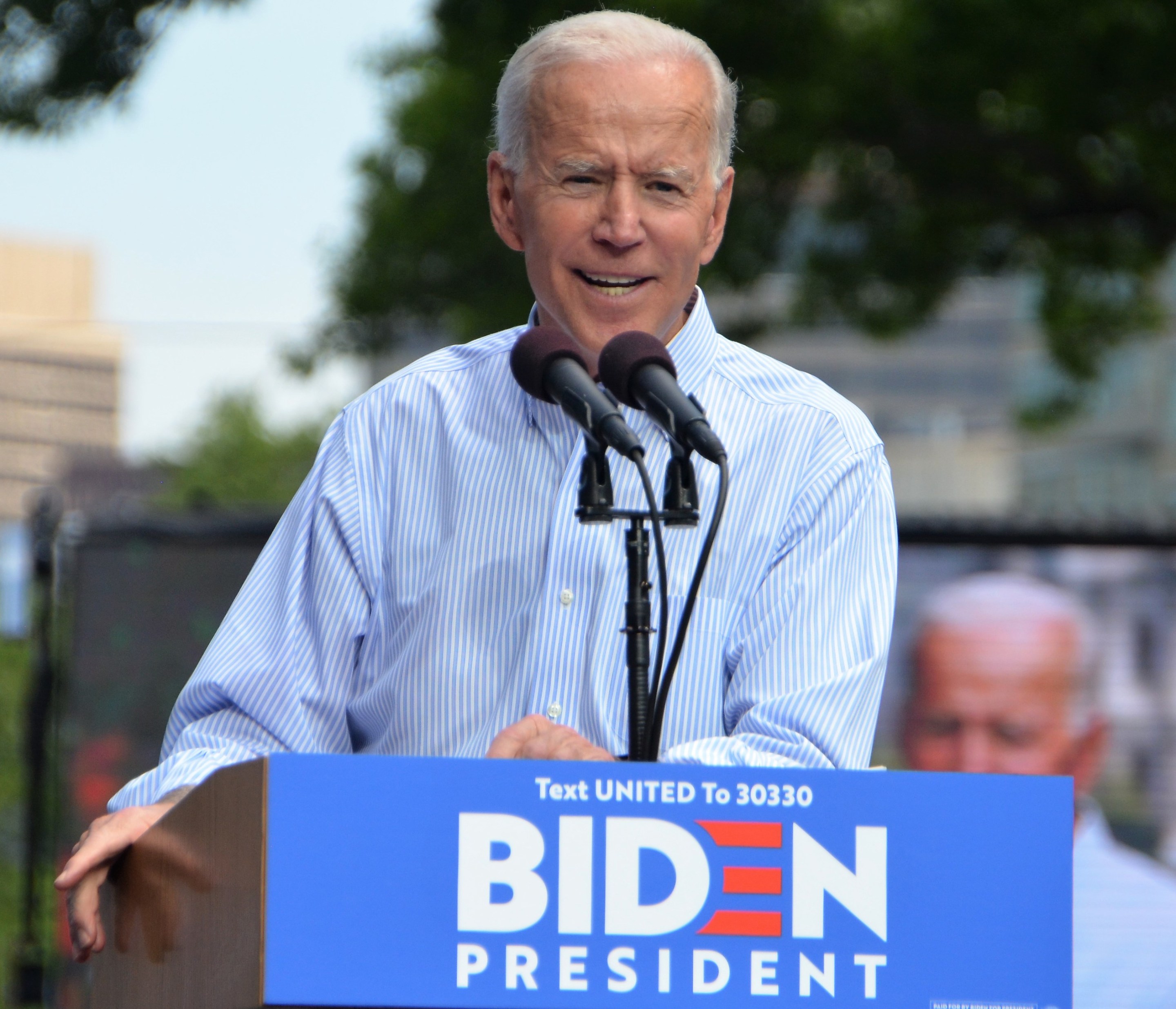President-elect Biden is poised to take bold steps to reform federal transportation incentives as soon as February — and advocates are optimistic that he could take quick action to support active transportation in a way no president before him has even tried.
In a jointly released agenda co-signed by basically every sustainable and equitable transportation organization you love, nonprofits People for Bikes and the Rails-to-Trails Conservancy outlined their top policy priorities for the new administration — and ambitious, but wholly doable, plan.
The groups believe their agenda dovetails nicely with the new administration's most urgent mandates upon entering office: curbing the COVID-19 pandemic, setting the stage to equitably rebuild our nation's economy post-pandemic, and approving a new green infrastructure plan once the Fixing America's Surface Transportation Act (FAST) expires in September 2021
"The alignment of necessary job creation through a pending stimulus bill, the timing of reauthorization in 2021, urgency to address climate, and the trail and bike boom that COVID has ushered in — [these all] position this agenda, and active transportation, very well," said Brandi Horton, vice president of Rails-to-Trails.
Here are a few items on the agenda:
Build bike lanes, sidewalks and more in communities of color
Federal jobs for people of all education levels will be needed to drag our country out of the pandemic-prompted recession. And to avoid building things that end up becoming massive liabilities for our economy and climate, the group's suggest focusing on the greenest infrastructure out there: the humble sidewalk, the humble bike lane, and other traffic-calming initiatives that save lives.
Investments in green infrastructure jobs can be a powerful tool for COVID-resilience and racial equity, to boot. The agenda recommends "an initial $2.5 billion investment in...continuous low-stress active transportation routes that serve the essential needs of low-income and BIPOC communities and make critical connections to key destinations" as part of any stimulus package that passes in the first months of the administration.
Done in concert with a revival of the reparations-focused Ladders of Opportunity initiative, which the agenda also recommends, those investments could be one of the many powerful tools we need to repair the intergenerational harm wrought by racist urban renewal policies.
Give active transportation a voice at the DOT — finally
People who don't drive for transportation have never had a dedicated office to champion their needs at the federal Department of Transportation — which is wild, because every person travels by foot, bike or assistive at some point in their day. Rails-to-Trails and People for Bikes want Biden's DOT appointee to change that — and that person won't need the approval of Congress to do it because an "Active Transportation Administration reporting directly to the USDOT Secretary" does not need Senate confirmation.
It's an inexpensive shift that could be a game-changer for our traffic violence epidemic, especially if that office is more than ceremonial: the agenda also recommends that "the first priority of the [new office] should be to develop a comprehensive plan to quickly and dramatically reduce fatalities and serious injuries among pedestrians and bicyclists, including built environment improvements. The plan should include clear metrics and guidelines to hold states and localities accountable for results."
That's pretty much the opposite of what we have now, and there's absolutely nothing standing in Biden's way to get this done.
Treat transportation 'alternatives' as a stronger priority
No, it's probably not politically tenable to dump trillions of dollars on our nation's sidewalks right away. But here's something that shouldn't be controversial: investing more heavily in infrastructure that immediately pays for itself in the form of reduced carbon emissions and lower death tolls.
The agenda recommends that when Congress writes its new infrastructure bill to replace the FAST Act, it should "double current funding levels for the Transportation Alternatives Program" from $850 million per year to $1.7 billion. If the new bill is funded comparably to the one we have now, that will will be less than 2.2 percent of total DOT dollars — an eminently doable and worthy goal.
Start subsidizing biking and walking — just a little
Drivers receive all kinds of subsidies for using their cars for even easily walkable trips, and never fully pay the government back for the many ways their vehicles impact our society. The least we can do, the agenda argues, is level the playing field the tiniest bit, and start paying people a small amount to choose a bike to meet their basic needs. (We'd love to see the same incentivizes extended to people who walk and take transit, but hey, it's not our agenda.)
People for Bikes and Rails to Trails are encouraging congress to remember the cycling community in any upcoming climate legislation they write, including "tax credits for purchasing a bikeshare service membership, bicycle or electric bicycle," as well as making electric bikes eligible for federal cash-for-clunkers programs. Bonus: the former has the potential to help ease crowding on transit and curb the COVID-19 spread, too.
Read the full agenda here — and don't forget to contact your reps to let them know you support it.





